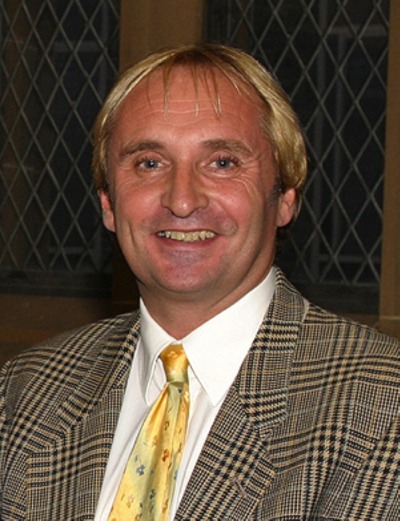Research into precision agriculture recognised
The highest honour in the discipline of soil science, the prestigious Dokuchaev award, has been awarded to Professor Alex McBratney from the Faculty of Agriculture and Environment at the University of Sydney.

Widely regarded as its ‘Nobel prize’ for soil science, the Dokuchaev award is presented by The International Union of Soil Sciences every four years. It is named after the late 19th century Russian scientist, who did the seminal work in recognising soil in its own right as part of the natural ecosystem.
The award recognises Professor McBratney’s research achievements from basic research in soil sciences.
Professor McBratney’s research on the description and understanding of the evolution of soil and its properties and processes has led to the development of new methods for capturing and disseminating of soil information. This, in turn, has lead to the sustainable management of soil in agriculture and the ecosystem.
These methods have been eagerly adopted by research groups and practitioners worldwide and been applied to precision agriculture and digital soil assessment.
The techniques of the team Professor McBratney leads now form the basis of an international global digital soil map, GlobalSoilMap, which is funded by the Gates Foundation. The map will play a key part in providing information for policy and management decisions on food production, hunger eradication, climate change and environmental degradation.
“We have been fortunate that others have appreciated the scientific approaches we have developed here. Several of the questions we have worked on arose from difficulties I encountered in explaining concepts to undergraduates - largely because the concepts were poorly thought out and had to be recast,” said Professor McBratney.
“So I believe very strongly in the nexus between teaching and research - and in teaching-inspired research.”
The award consists of an engraved medal, a certificate, an honorarium and financial support to attend the presentation in early June 2014 at the 20th World Congress of Soil Science in Korea.
The University of Sydney formalises cervical cancer elimination partnership
The success of a cervical cancer elimination program has led to the signing of a memorandum of...
Noxopharm says paper reveals science behind its immune system platform
Clinical-stage Australian biotech company Noxopharm Limited says a Nature Immunology...
Neurosensing/neurostimulation implants session to be held on Monday
On Monday, a session at UNSW Sydney will include people who are benefiting from bioelectronics...



